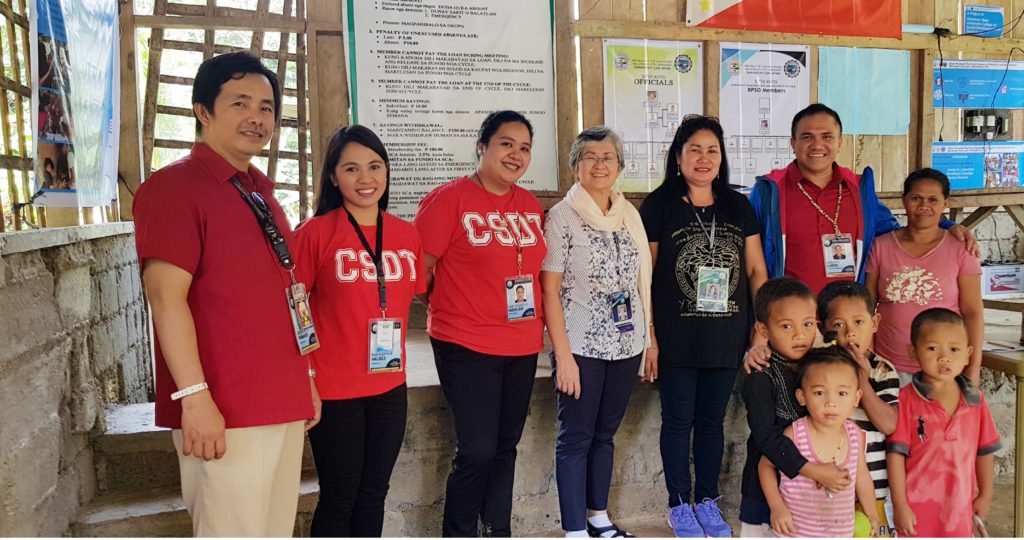

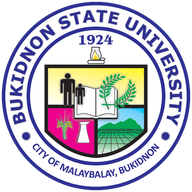




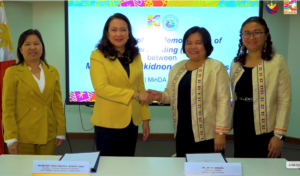
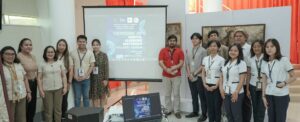


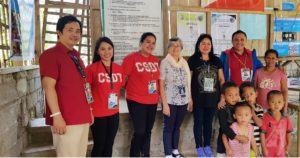
CAN-AYAN, Malaybalay City (04 September) The projects of the College of Social Development and Technology extension unit have addressed the basic needs of the community, said an accreditor surveying the extension function of the seven programs of the university submitted for accreditation.
Dr. Lilia Z. Boyles, who is from Caraga State University, said the projects were heart-warming and have empowered women.
“The CSDT extension projects are touching the lives of the community. It’s really nice to hear that these are successful and sustainable extension projects,” said another accreditor, Dr. Nelia S. Raganas, also from CarSU.
Three of the CSDT extension projects visited by accreditors on September 4 addressed basic needs: food, water and light.
Ms. Jan Isobel Hidalgo, CSDT extension coordinator, said accreditors visited the Food Safety, Processing and Entrepreneurship project in Poblacion Brgy. Can-ayan where a group of 10 women engaged in banana chips production have developed a community-based enterprise.
According to an impact study, the women involved in the enterprise were able to earn an income of their own in addition to existing family income. Some women also were able to realize their dreams like being able to travel to new places, maximize their idle time and learn new skills.
Ms. Hidalgo cited that the enterprise earned an estimated P30, 000 sales since inception in 2017 and obtained a return of investment (ROI) of 7.47 percent.
Kag. Gemma Agawin of Brgy. Can-ayan said the banana chips production project helped the women learn business skills and earn additional income.
Ms. Ruby Peralta, a faculty member of the Food Technology program, said the project also gave opportunities for women to showcase their products in different places and even join food expos in Manila.
The accreditors also visited the project that addressed another basic need in the community, the Design and Development of Sustainable Water System in Sitio Tintinaan, one of the villages in Brgy. Can-ayan. For years, most residents walked as far as 300 meters to the water source.
With the installation of the water system in March 2017, all of the 50 families in the village have easier access to the water source with most of them closer to the source than they used to.
The accreditors also visited the Solar Powered-Electrical System project at Poblacion and Sitio Kiito, Brgy. Can-ayan, which CSDT initiated.
Sitio Kiito residents did not have access to electricity but starting December 2016, the project was able to install three street lights covering the Sitio Hall and Basketball Court, Ms. Hidalgo added. The project was also able to provide solar-powered electric light to 15 of the 30 households in the village. The villagers have access to electric light from 5p.m. to 11p.m.
The project was also able to distribute seven solar-powered flashlights to those who were not able to avail of solar-powered electric lights. Ms. Hidalgo said there was gradual installation of solar powered electricity because it was done with student outputs.
Within the year, she added, the college is also set to install six street lights in the Poblacion area with a funding of P49,000 to address security and safety of the residents.
Ms. Hidalgo said the choice of adopted community, Brgy Can-ayan, is a challenge to the faculty.
“But what counts most is the passion of helping,” she added.
Brgy chair Rommel S. Seblian said the different projects did not only provide livelihood skills but also addressed other issues like security and insurgency in the barangay, which is an IP-dominated locality.
AACCUP accreditors also visited two extension projects of the College of Business, namely the project with the Indigenous Peoples Mandatory Representatives of Malaybalay and the PWD-maka trabaho, PWD maka-negosyo project with persons with disabilities, both in Malaybalay City proper.
Dr. Lesley Lubos, BukSU extension director, said the university’s extension projects cater not only to a few people but to all walks of life, from farmers to IP mandatory representatives among others and sought to address lifelong needs of the communities. (Ms. Mary Daphne P. Silvestre and Mr. Walter I. Balane)
Editor’s Note: Late Upload
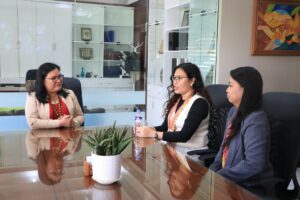
MALAYBALAY CITY – SOCOTEC Certification Philippines recommended Bukidnon State University for Continued Certification of ISO 9001:2015 of the university’s Quality Management System (QMS). A two-day

Bukidnon State University is in need of the following non-teaching personnel for the Main Campus. For more Inquiries: Download Notice of Hiring
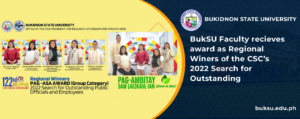
PAG-ASA Award (Group Category) Share to Heal Extension Project Leader Dr. Joy M. Mirasol and Lead Extensionists Dr. Jiemalyn B. Paulican, Ms. Joanne Vivien B.
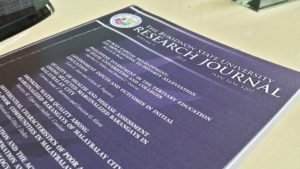
By virtue of CHED Memorandum Order No. 15 series of 2014, the Bukidnon State University Research Journal has been upgraded to Category A CHED Accredited